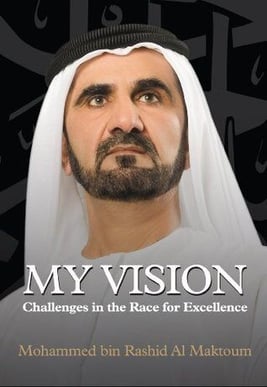NEEMA UTHAPPA
Chief Information Officer at Oliver Wyman Group
Can you please provide a little introduction about yourself
My name is Neema Uthappa, and I hail from the picturesque region of Coorg in India. Currently, I reside in Boston, where I serve as the Chief Information Officer (CIO) for Oliver Wyman Group. This esteemed international management consulting firm is renowned for its ability to blend deep industry knowledge with innovative strategies, enabling us to create transformative breakthroughs for our client companies across various sectors.
What path have you taken to your current position? (e.g., where did you start and any key milestones on your journey)
I embarked on my professional journey as one of the first three female executive officers (Works) in the Indian Navy, a role that was both challenging and rewarding. After my tenure in the Navy, I relocated to the United States in 2010, where I transitioned into significant management positions at several prestigious organizations. My career has included impactful roles at American Express, McKesson Corporation, and McKinsey & Company, each of which has contributed to my growth and expertise in the technology and business sectors.
Has it always been your vision to reach the position you’re at? Was your current role part of your vision to become a tech leader?
When I joined the Indian Navy in 2001, I never envisioned leaving India or pursuing a corporate career. At that time, becoming a CIO was not part of my aspirations. However, after moving to the U.S. in 2010 and gaining experience in various roles at American Express—spanning technology, business, and finance—I began to reflect on my career trajectory. I considered whether I wanted to pursue a role as a Chief Technology Officer (CTO), Chief Data Officer (CDO), or CIO. Ultimately, I chose the CIO path, as it aligned with my interests in both the business and technology realms. The role of the CIO has evolved significantly, transitioning from a focus on day-to-day IT operations to a strategic position that influences business decisions through technology and innovation. This multifaceted nature of the CIO role intrigued me and guided my journey to where I am today.
Have you had a role model or mentor that has helped you on your journey? (If you feel comfortable, please share their name and how they helped you)
Dr. Abdul Kalam, a former President of India and a distinguished scientist, has been a profound source of inspiration for me. His story of studying under a streetlight due to a lack of electricity in his childhood exemplifies resilience and determination. In my corporate journey, I had the privilege of meeting Dina Shapiro in 2014, who was the Chief Tax Officer at American Express at the time. She took me under her wing and has been a significant influence in my life, guiding me to maintain my values while making critical decisions at pivotal moments in my career.
Change is accelerating. How do you see the role of the technology leader evolving over the next 5 years?
The landscape of technology leadership is undergoing a profound transformation. Gone are the days when technology leaders merely executed business requests. Today, the role has evolved into that of a strategic partner for business leaders, where understanding the rationale behind business cases and assessing ROI are paramount. Technology leaders must optimize solutions to maximize the benefits of investments. Achieving scalability, reliability, and flexibility through the adoption of new technologies is essential. Additionally, a deeper understanding of emerging technologies will enable leaders to optimize solutions through various permutations and combinations, ensuring that they remain at the forefront of innovation.
What skills do you think leaders of the future will need in order to thrive?
Authenticity is a cornerstone of effective leadership. It is crucial for leaders to foster transparency within their teams, creating an environment where open communication is encouraged. Additionally, leaders must be logical in their reasoning while also being empathetic listeners, valuing diverse perspectives and ideas. This combination of skills will enable leaders to navigate the complexities of the modern workplace and inspire their teams to achieve collective goals.
Is there anything in particular that you would still like to achieve in your career, or what is the next step on your journey?
I do not adhere to a rigid checklist for my career progression. I firmly believe that if you become overly focused on future roles, you may not perform to your fullest potential in your current position. My priority is to fully engage with the challenges I face today, striving to elevate my team and drive the Oliver Wyman Group to reach its maximum potential. I am committed to raising the bar for my current team and ensuring that we collectively achieve our goals.
What advice would you give to aspiring technology leaders who are just starting their careers?
My advice to aspiring technology leaders is to embrace experimentation and be open to taking calculated risks early in their careers. This could involve exploring various solutions to problems or even changing roles within an organization to gain diverse experiences. Each new role and experience contribute to your growth as a leader, and ultimately, all the learning will coalesce to make you a more effective leader in the future.
"Embrace experimentation and be open to taking calculated risks early in their careers."
What role do you see emerging technologies (e.g., AI, machine learning, blockchain) playing in your industry, and how are you preparing for them?
The introduction of new technologies is significantly reducing the lead time required to access information. AI tools, for instance, can process vast amounts of data in real time, providing businesses with deeper insights more quickly than ever before. While technologies such as machine learning, blockchain, and AI have rapidly emerged over the past 10-15 years, they have also normalized within organizations at an astonishing pace. The speed of change and adaptation has increased, making these innovations part of everyday operations. The initial excitement surrounding new technologies often fades quickly, similar to how society has adapted to the pandemic. What was once considered groundbreaking becomes routine, and organizations must continuously evolve to stay ahead.
What has been your most significant achievement or proudest moment as a technology leader?
One of my proudest moments as a technology leader was securing my first patent during a challenging period for American Express, following the loss of a significant partnership with Costco. I set out to invent a product that would help mitigate that loss, and I successfully developed a solution that projected $14 billion in annual revenue. Being awarded a genius medal by American Express for this invention was particularly special, as it marked a significant milestone in my career.

A big thank you to Neema Uthappa from Oliver Wyman Group for sharing her journey to date.
If you would like to gain more perspective from Tech Leaders and CIOs you can read some of our other interviews here.
April 29, 2025


